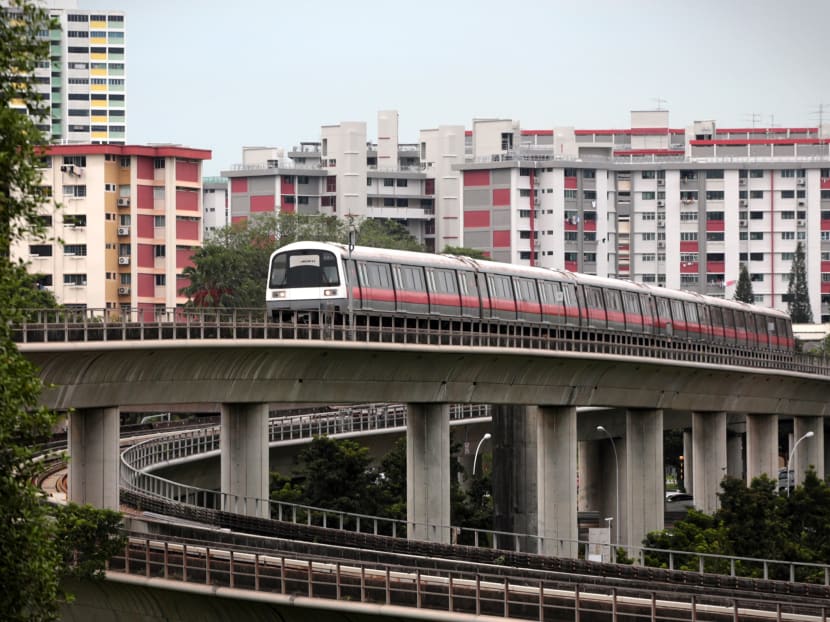NSL signalling tests to last for months, delays expected
SINGAPORE — The trials of the new signalling system for the North-South Line (NSL) — which started on March 28 — may take a “few more months”, SMRT and the Land Transport Authority (LTA) said on Tuesday (June 27).
SINGAPORE — The trials of the new signalling system for the North-South Line (NSL) — which started on March 28 — may take a “few more months”, SMRT and the Land Transport Authority (LTA) said on Tuesday (June 27).
Acknowledging the teething problems that surfaced during the trials so far, SMRT and the LTA said in a joint statement that in the coming weeks, they will conduct “intensive performance checks” and deploy new software to improve the system.
“During this period, commuters may continue to experience some delay when travelling on the NSL, if new issues emerge. We seek your continued understanding and patience, as our team works round the clock to resolve these issues as quickly as possible,” the statement added.
Progressive testing of the new signalling system has been carried out for the past three months, with the trials first conducted over the last hour of passenger service. On April 16, the tests were moved to Sundays, before full-day weekday trials started on May 29.
The full-day trials over the past four weeks have allowed engineers from SMRT, LTA and Thales – the supplier of the signalling system – to conduct stress tests and observe the system’s performance “under intense operational conditions that are typical of weekday peak hours, when trains are running at high frequencies with heavy commuter loads”, the statement said. Kinks have also been ironed out, such as improvements to the alignment of train doors and platform doors at stations, and better regulation of train service intervals.
However, the NSL has been hit by several delays following the start of the weekday tests. An incident on June 1 was due to a glitch in the computer server used to manage train schedules, while a delay the next day was attributed to a fault with the signalling equipment. There was also a delay during morning rush hour on June 12 because of signalling faults.
Mr Alvin Kek, SMRT Senior Vice President for Rail Operations (NSEWL), said: “We would like to thank commuters for their patience and understanding as we do our best to run-in the new signalling system, and ensure that it can deliver a higher level of service reliability and shorten waiting times for commuters in the near future. This may take a few more months, but we are confident that system operations will progressively improve over time.”
Last month, Mr Chua Chong Kheng, LTA’s deputy chief executive for infrastructure and development, said the signalling system would be rolled out sometime this year when the LTA is “comfortable that the system is performing as expected” and most of the issues have been resolved. After its roll-out, the system would take about “four to six months” to stabilise, Mr Chua had added.
Commuters TODAY spoke lamented the prospect of having to put up with more delays in the coming months.
A 26-year-old marketing executive who gave her name only as Ms Wang said she is constantly “frustrated” by the delays which often prolong her commute by an additional 10 to 20 minutes. The situation has gotten so bad that she is frequently late for work, but her colleagues have been understanding so far, she said.
Third-year National University of Singapore student Bernice Yap, 22, who is currently on an internship, tries to set off earlier from her home at Sembawang to her workplace at Farrer Park to make sure she is not late.
She recounted an incident last week when the train which she was on was moving very slowly, and the doors kept opening and closing. She was rushing for a fitness class after work, and there was a “collective groan” from commuters when they were told to get off the train. “I’m resigned to it… We can’t take another line or always (take taxis or private-hire cars) to work because of the peak hour prices,” she said.
Financial analyst Zachary Ong, 27, who lives near Khatib, travels to Raffles Place for work every day. He felt that short delays of less than 15 minutes were still “understandable”, but he would consider taking alternative transport options if the disruption lasts longer. When delays are expected, commuters could be better informed in advance such as through mobile app updates, he suggested.







